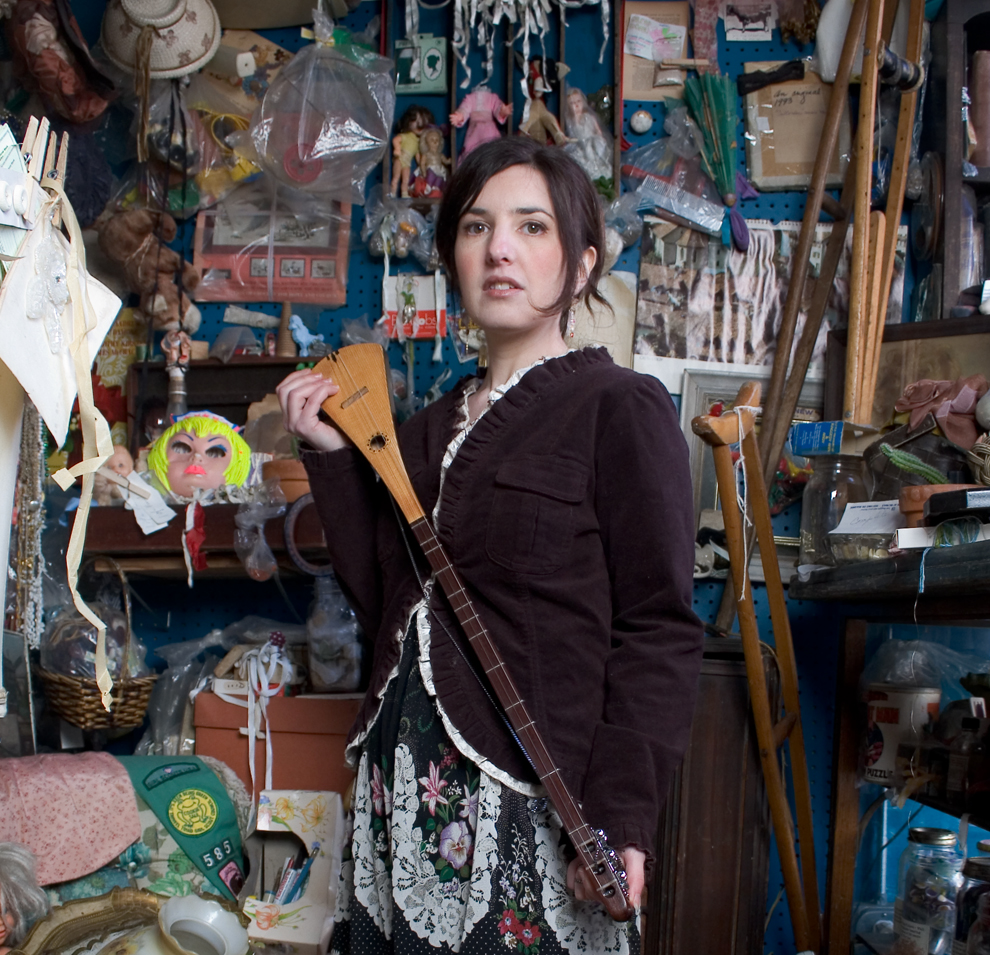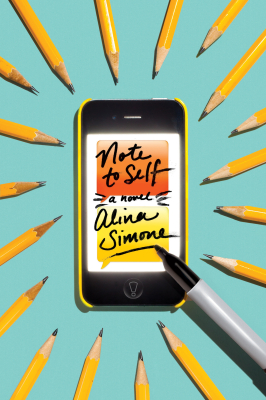There’s a part in Alina Simone’s first novel Note to Self where our lost, slightly overweight, newly laid-off, and single 37-year old New Yorker protagonist Anna is on a date with an attractive (and, of course, very narcissistic) filmmaker. During a quiet and honest moment he asks her to tell him a secret that no one knows. Total lights out on the flirty vibes, Anna tells him she’s addicted to the internet. It’s a palm-to-head-slap, quite possibly the least romantic response in recent contemporary literary memory I can think of. It’s with these specific moments that Alina Simone paints the portrait of a modern-day, stunted underdog (or, even quite tragically, an underpup of sorts), a lost and vulnerable heroine who sets on a blind journey in this dark comedy. Here, Alina and I delve a little deeper into the conversation about Note to Self and the perpetual 21st-century anxieties of being both so connected yet so disconnected all at the same time.
How did you come about selling your first novel to a publisher? What was that like?
Well, I sold my novel immediately to the same publisher who put out my first book (of non-fiction essays called You Must Go and Win) so it was actually pretty easy. They had a “first look” option because of my first book and after they said yes, I searched no further. I got my first book deal because an editor at FSG heard my music on Pandora (I was an indie-rock singer for many years), bought some of my albums, then contacted me out of the blue to see if I’d like to write a book. Kind of a fairy tale story without the part where I sleep on floors and sing in sad empty bars for six years first.
Not to sound like an age-ist but this is the kind of book my parents wouldn’t totally understand with all of the internet references. Was that ever a concern for you, that this story might alienate people who aren’t up on web-speak?
You know, I recently read the Pillow Book (the diary of an 11th century Japanese courtesan)—and without implying my novel is a timeless classic—it’s incredible how well the seemingly-archaic rituals of the Japanese court have held up over time. During the Heian era, when this book was written, swapping clever poems was all the rage, a skill that demanded speed, concision and dexterity with words. I swear, it totally reminded me of Twitter. I think what’s important is the emotion behind all these rituals and props.
My parents and in-laws seemed to have no trouble following the story. But yes, I wanted to write an extremely modern book and there’s really no point in going halfway. I mean, books written fifty years ago will most likely feel dated regardless of whether they omit mentions of Facebook.
I found it funny that this story is about someone who can’t stop going online, yet the very act of book-writing is where you have to discipline yourself from going on the net. Was that true for you? Were you ever like, “But this is also research!”
Ha! Yes, I did do a lot of research online. That Chat Roulette stuff is 90% real (for the record, I never took my shirt off) [ed note: spoiler alert (not really), Anna goes masked and topless for a stranger she lands on Chat Roulette] and so are a lot of the Craigslist ads. But I also used the Freedom app a lot to block the Internet for some number of hours in order to harness my discipline.
NYC is a funny place to be a writer. It’s over-stimulating, it’s never quiet, and if you’re not working, it’s an expensive place to be. What are some things about the city you connect with?
I really love New York City. All the things you say about it are true, and I know that eventually drives a lot of people who move here away. I have to say, I kind of thrive on the pressure and stress, the stakes of it all. The struggle to just maintain your toehold in the city while not letting the brilliance that surrounds you swamp your little atoll of self-esteem. I love the galleries especially. Chelsea. The Lower East Side. And the people. I love New Yorkers. All that struggle really puts grit in people here, you know? You have to bring your A-game.
I feel like in life, there’s this sense that whatever your job is becomes the thing that people identify you as. So when Anna loses her job, she goes down this unsettling spiral of identity crisis. As a singer-songwriter-turned-actual-writer, did you feel that way too, that you took on a new (or updated) identity?
Not so much as when I switched from being a singer to a writer—I mean, that’s a pretty fluid switch, and I still play shows from time to time—but when I left my day job (to have a baby) two years ago, I did feel exactly that vertigo that Anna felt. For six years I’d had this job that really anchored me to “the real world,” then suddenly it was gone and my future was all up to me. It’s definitely a situation that can either be soul-crushing or inspirational, depending what you make of it.![]()
@AlinaSimone
Photo credit: Matthew Spencer

